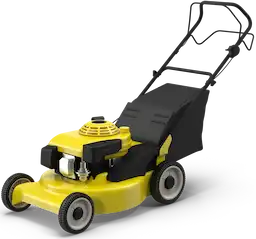Salt can kill weeds, but whether you should use it depends entirely on where you’re applying it and how carefully you handle the runoff. Let’s break down what actually happens when you treat weeds with salt, and how to do it without ruining your soil, grass, or future garden plans.
How Salt Kills Weeds at the Root
Salt disrupts plant cells by pulling water out of them through osmosis. When you apply salt to a weed, it dries out the stems and leaves and slowly stops the plant from drawing up water. This can take a few days to fully show results, but once it starts, the plant wilts, browns, and dies back from the top down.
That sounds simple, but salt doesn’t target weeds alone. It affects anything that grows. The sodium builds up in soil and can stop any plant from taking in nutrients, meaning you’re not just clearing weeds, you’re potentially sterilizing that part of your yard.
When Using Salt for Weed Control Makes Sense
If you’ve got weeds growing between patio stones, in sidewalk cracks, or along a gravel driveway, salt can be a decent tool. It works best on surfaces where you’re not trying to grow anything else and where rain can gradually flush excess salt away.
Why It’s a Bad Fit for Lawns and Garden Beds
Salt doesn’t respect boundaries. A gust of wind or a heavy watering can push salty runoff into your lawn, flower beds, or vegetable patches. Even a few tablespoons in the wrong spot can turn healthy soil into dead zone for weeks. If you’re treating weeds near a lawn edge or vegetable garden, salt’s more of a liability than a solution.
What Kind of Salt Works on Weeds?
The short answer: most types of salt will kill weeds. But there are some differences worth noting if you’re thinking like a pro.
Will Table Salt Kill Weeds?
Yes. Regular iodized or non-iodized table salt (sodium chloride) is strong enough to desiccate most weeds. It’s also easy to dissolve for a spray solution. Just remember, table salt is highly refined and packs a punch, so go easy.
Will Rock Salt Kill Weeds?
Rock salt is rougher and less processed, but it’s the same compound: sodium chloride. It works just like table salt but dissolves slower. That makes it better for long-term prevention in cracks or gravel areas, where you don’t mind salt sticking around a bit longer.
Why Epsom Salt Isn’t the Same Thing
Epsom salt is magnesium sulfate, not sodium chloride. It actually feeds certain plants rather than killing them. If you’re looking to damage weeds, stay away from Epsom, save it for tomato season.
How to Apply Salt Without Destroying Your Yard
Done wrong, salt can do more harm than any weed ever will. But used in the right place with the right mix? You’ll get results.
Mix Salt With Water for Targeted Use
Start with one part table or rock salt to two parts water. For tougher weeds, a 1:1 ratio works. Spray directly onto the weed’s base, avoiding nearby grass or soil. Don’t drench the area, just enough to coat the leaves and soak into the root zone.
Add Dish Soap or Vinegar (Carefully)
Some homeowners mix in a splash of vinegar to speed up drying and a drop of dish soap to help the solution stick to leaves. That combo creates a fast-acting surface burn, but it doesn’t always reach the root. Stick with salt for longer-lasting results in hardscape cracks.
Pro Tip: Apply salt solutions on dry days when rain isn’t expected for at least 48 hours. That gives the mixture time to work before getting washed into unwanted areas.
How Long Does Salt Take to Kill Weeds?
You’ll usually see wilting within 24–48 hours, but the full die-off can take up to 10 days, especially for deeper-rooted weeds like dandelions or thistles. One round often isn’t enough. Some spots need repeat treatment over two or three weeks.
If you’re treating cracks in concrete or between pavers, the results can last a full season. But if you’re trying to spot-treat areas near the lawn or shrubs, expect to repeat the job cautiously every few weeks.
Will Salt Kill Weeds and Grass?
Yes, and that’s the problem. Salt is non-selective. Spray it on a weed in the middle of your lawn, and the grass around it will die too. Worse, that bare patch might not support new growth for months unless you aggressively flush the soil or dig it out entirely.
Reality Check: Just one cup of salt spilled on the wrong part of your lawn can kill a 2×2 foot area and delay new growth for up to 60 days, especially in dry climates.
Can Salt Damage Soil Long-Term?
Absolutely. Repeated salt use builds up sodium in the soil, which binds to clay and compacts the structure. That makes it harder for roots to grow and reduces how well the ground drains. Over time, you’ll notice fewer earthworms, stunted plant growth, and discolored patches where nothing seems to thrive.
If you overdo it, the only fix may be removing the soil entirely or flooding it repeatedly to leach the salt down below root level. That’s time-consuming and water-wasteful.
Warning: In regions with little rainfall (like parts of Arizona or inland California), salt can stick around for months without leaching. Avoid using it anywhere you plan to plant.
Safer Alternatives to Salt for Weed Control
If you’re working in garden beds or near the lawn, skip the salt and try these instead:
- Boiling water – Kills weeds instantly but doesn’t linger in soil.
- Manual pulling – Works best after rain, when roots are loose.
- Flame weeding – Good for driveways or gravel paths if used cautiously.
- Corn gluten meal – Helps stop weed seeds from sprouting in early spring.
These options don’t sterilize the soil, and most are safe around pets and pollinators when used right.
Contractor Scenarios: What We’d Do
- Gravel driveway in Michigan: Salt can be used sparingly early in the season. Expect a 10–15 day result window. Rain helps flush excess out.
- Sidewalk cracks in Georgia: Salt might burn nearby grass in humid zones with compacted clay. Stick to boiling water or a flame weeder.
- Backyard patio in Arizona: Too risky. Without regular rainfall, salt will linger. Use manual methods or spot herbicide if permitted locally.
- Mulched beds in Illinois: Skip the salt entirely. Use a hand weeder and top up the mulch to 3 inches deep.
FAQs: Quick Answers to Common Salt Weed Questions
Will rock salt kill weeds permanently?
It can prevent regrowth for a season in cracks or gravel, but no treatment is permanent. Wind-blown seeds return eventually.
Will salt water kill weeds but not grass?
No. Salt water kills both. Grass is just as vulnerable, especially young or drought-stressed turf.
Will table salt work just as well as rock salt?
Yes. The effect is the same, table salt just dissolves faster and spreads more easily.
Does salt hurt all plants?
Yes, especially those that aren’t salt-tolerant. Very few common yard plants can handle even low doses of sodium in the soil.
Need a Reliable Way to Clear Weeds Without Guesswork?
If you’re tired of trial-and-error weed control or worried about long-term soil damage, it might be time to call in a local expert who knows your climate and your soil. Weeds aren’t just a nuisance, they’re a signal your lawn needs attention.
Let a pro take care of it so your yard stays healthy from the ground up.





